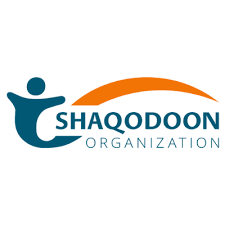Terms of Reference (ToR)
Development and Recording of a Video-Based E-Learning Course on Good Agricultural and Climate-Resilient Practices with Greenhouse Installation and Drip Irrigation
1. Background
Shaqodoon is a local NGO established in 2011 to create innovative and sustainable solutions
addressing youth employment challenges in Somalia and Somaliland. The organization implements programs in livelihood skills, economic empowerment, education, and technology innovation.
Shaqodoon’s mission is to expand employment and education opportunities for youth, particularly those who are marginalized, at risk, or excluded from economic participation.
2. About the Project
Shaqodoon, in consortium with ADRA, Windle, and Save the Children International (SCI), is implementing a three-year EU-funded project titled Initiative for Marketable Practices in Agri- business, Circular Economy, and Technology (IMPACT).
The IMPACT project aims to:
· Strengthen sustainable and climate-resilient agri-food value chains;
· Increase access to renewable energy and water-efficient farming systems; and
· Support the transition to a circular and sustainable rural economy.
The project collaborates closely with the Ministry of Education and the Ministry of Labour and Social Affairs to ensure alignment with national priorities and sustainability.
3. Purpose of the Assignment
The purpose of this assignment is to develop a video-based e-learning course that equips Somali farmers, youth, and agricultural learners with practical knowledge and skills on climate-smart agriculture, greenhouse management, and drip irrigation.
The course will promote sustainable and resilient farming systems that improve productivity, reduce vulnerability to climate shocks, and encourage efficient water use.
4. Scope of Work
The consultant/firm will be responsible for the design, production, and delivery of the e-learning course, including all content development, filming, and post-production.
4.1 Content Development
Develop a comprehensive and practical content that includes the following core topics relevant to Somali farmers:
· Introduction to Good Agricultural and Climate-Resilient Practices (GACRP)
· Soil management and fertility improvement using organic and locally available inputs
· Efficient water management, including rainwater harvesting and drip irrigation
· Greenhouse farming: design, construction, and crop management
· Crop planning, diversification, and seasonal production
· Integrated pest and disease management using safe, sustainable methods
· Post-harvest handling and storage to reduce losses
4.2 Content Creation
· Prepare all written and visual learning materials, including:
o Lesson scripts and presentation slides
o Diagrams and infographics
o Quizzes and short exercises for self-assessment
· Develop practical demonstration scripts to accompany each video module.
4.3 Video Recording and Production
· Record high-quality instructional videos covering both theory and practical field demonstrations.
· Include step-by-step demonstrations on greenhouse installation and drip irrigation setup.
· Ensure clear narration, visual quality, and accessibility (Somali narration with English subtitles or vice versa).
· Integrate animations and graphics where necessary to simplify complex steps.
4.4 Post-Production
· Edit all video materials to ensure clarity, continuity, and engagement.
· Add visuals, captions, graphics, animations, and titles where helpful to enhance learning
· Deliver final videos in formats suitable for the KOORSO e-learning platform
· Ensure all videos include module titles, learning objectives, and closing credits aligned with Shaqodoon’s branding.
4.5 Assessment and Evaluation
· Design and conduct simple pre- and post-learning assessments to measure knowledge gained for each module
· Include interactive quizzes, knowledge checks, and practical exercises for each module.
· Provide answer keys and guidance notes for trainers and learners.
· Collect participant feedback to evaluate the course’s effectiveness and relevance.
5. Deliverables
The consultant/firm is expected to deliver the following:
1. A comprehensive course outline and detailed lesson plans.
2. Complete training materials (manuals, handouts, slides, scripts).
3. Professional and High-quality video recordings of all lessons and demonstrations.
4. Edited and finalized video modules ready for online publication.
5. Assessment tools and summary results (pre/post tests and quizzes) for each module
6. A final report summarizing the course development, delivery process, participant engagement, and key lessons learned.
6. Duration
The assignment is expected to be completed within 3 months from the date of contract signing.
7. Qualifications and Experience Required
The consultant/firm must demonstrate:
· Proven experience in agricultural training or agribusiness, particularly in climate-smart and irrigated farming in Somalia/Somaliland or similar contexts.
· Technical expertise in greenhouse farming and drip irrigation systems.
· Demonstrated experience in developing e-learning or video-based training content.
· Ability to simplify technical content for learners with varied literacy and technical backgrounds.
· A portfolio of previous relevant projects.
8. Proposal Requirements
Interested consultants/firms should submit:
· Company profile and legal registration documents
· A technical proposal describing the proposed approach, methodology, and detailed work plan.
· Samples of previous e-learning or training videos.
· A financial proposal with a clear, itemized budget.
· CVs of key personnel including Agronimist and digital development expert with relevant experience and qualifications. Personnel with fluency in multiple Somali dialects will be considered an added advantage.
G. Evaluation Criteria
Criteria | Weight |
Relevant experience in agricultural and e-learning content development (Somalia/Somaliland context) | 30% |
Quality and practicality of proposed approach | 30% |
Cost-effectiveness and budget clarity | 30% |
Feasibility and timeliness of the proposed work plan | 10% |
How to apply
10. Submission Instructions
All proposals must be submitted electronically to: [email protected]
Deadline for submission: 20 November 2025
Late or incomplete submissions will not be considered.

